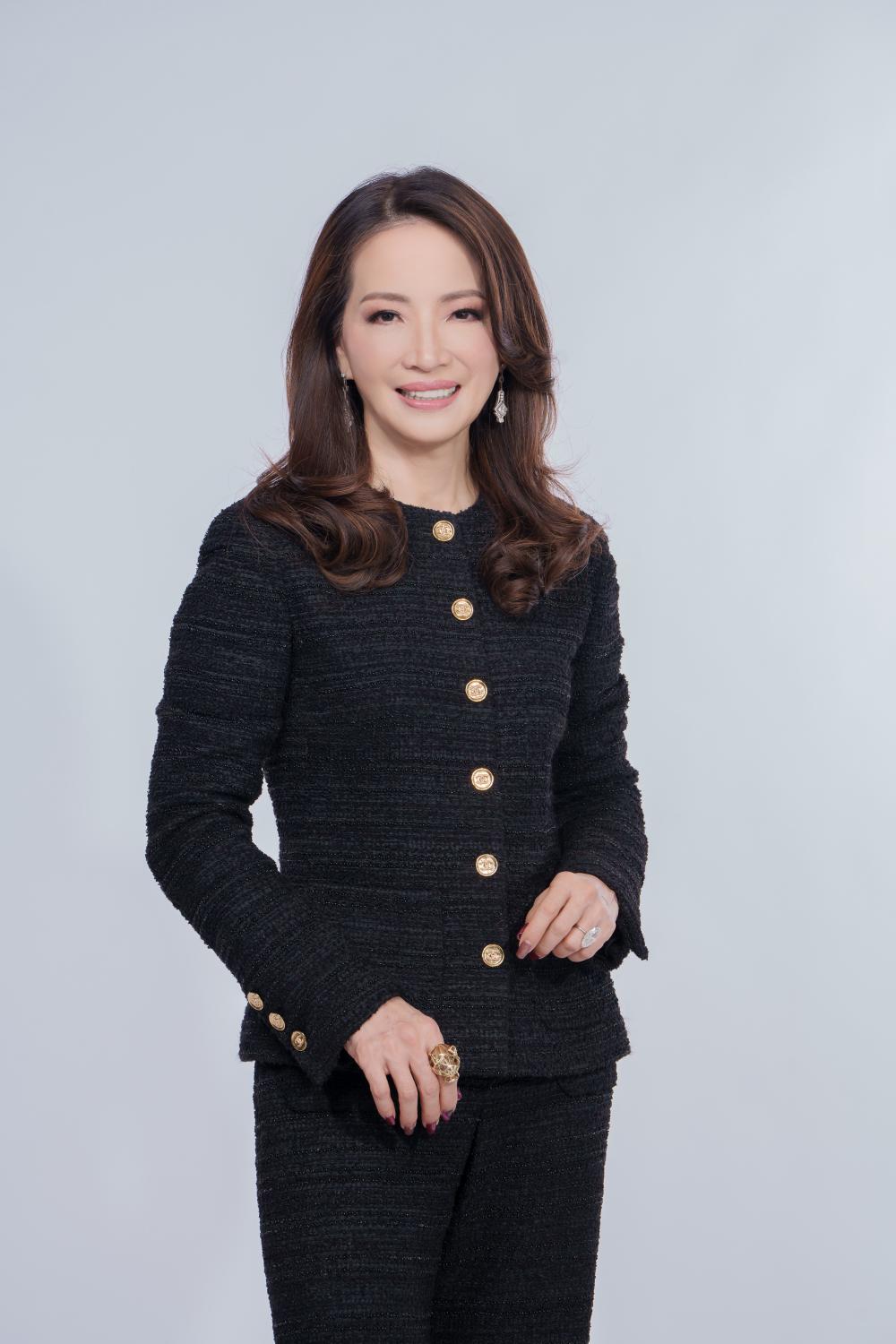How WHA uses practices to manage risk
While more foreign investment in Thailand drives up revenue for WHA Corporation Plc each year, its increased investment and spending on eco-friendly projects and inclusive workplace approaches are crucial for the company’s business sustainability.
“Giving weight to ESG helps us strengthen our risk management,” said Jareeporn Jarukornsakul, chairman of the executive committee and group chief executive of WHA, which operates industrial estates, logistics, and utilities and power businesses, as well as providing digital platform services.
ESG, which stands for environmental, social and governance, provides guidelines for business plans as well as criteria used for assessing how a company operates in a responsible and sustainable manner.
WHA bases its mid- to long-term business direction on ESG, along with an annual business plan aimed at racking up revenue.
One goal is to support the company’s risk management in terms of environmental and financial aspects, as well as its relationships with people, particularly staff members.
REDUCING CARBON
WHA is implementing a campaign to reduce carbon dioxide emissions, aiming to streamline financial management and become a green business operator.
One project promotes clean energy by offering eco-friendly transport and logistics to meet customers’ needs in its industrial estates, said Ms Jareeporn.
WHA announced earlier this year it plans to offer 1,700 rental vehicles, primarily electric vehicles (EVs), this year.
In the first quarter, the company rented out more than 330 EVs to logistics operators after introducing them to electric mobility technology.
“EVs helped them save more than 600 million baht in transport expenses,” she said.
By 2029, WHA wants to ramp up its rental fleet to 20,000 vehicles, which would help achieve a reduction of up to 280,000 tonnes of carbon dioxide equivalent (CO2e) a year.
This is part of a larger plan to expand WHA’s mobility business under the Mobilix brand, which includes EV rental services, charging solutions and mobility software.
“WHA developed green logistics, which covers EVs, charging stations and plans to reduce carbon dioxide in line with the global net-zero campaign,” said Ms Jareeporn.
The company is committed to achieving a net-zero emission target, a balance between greenhouse gas emissions and absorption, by 2050.
SOLAR AMBITIONS
WHA also allocated an investment budget to grow its solar energy business.
WHA Solar, a solar power solution offered by WHA Utilities and Power Plc (WHAUP), a subsidiary of WHA, involves no upfront costs for clients under a long-term private power purchase agreement (PPA).
Under the private PPA, which avoids the state grid, the company installs solar panels for a customer and operates a maintenance programme in return for electricity prices paid by the customer over a specific period.
WHA aims to have PPAs accounting for total power generation capacity of 657 megawatts this year, rising to 1,200MW in 2029, she said.
“This plan should reduce greenhouse gas emissions by 683,000 tonnes of CO2e and generate more than 5.6 billion baht in revenue a year,” said Ms Jareeporn.
WHA’s customers would save roughly 1.86 billion baht a year combined on their electricity costs, she said.
The company’s other solar energy projects include the installation of floating solar farms, along with solar light-emitting diodes for street lighting in compounds within its industrial estates.
This solar power business and the shift towards increased use of clean energy should help WHA reduce greenhouse gas emissions directly and indirectly under Scope 1 and 2 emissions.
Scope 1 refers to greenhouse gas emissions, especially carbon dioxide, from the daily operations of a company, while Scope 2 refers to indirect emissions, such as purchased electricity.
These eco-friendly operations also help WHA better manage financial flows, said Ms Jareeporn.
“ESG improves risk management by enhancing access to capital,” she said.
This advantage is well-known to companies adopting ESG as businesses with a significant carbon footprint often have higher operating costs and more difficulty in obtaining loans, said Ms Jareeporn.
Bankers and investors now factor in climate change risks when considering loan applications or making new investments, she said.
RECYCLING WASTE
WHA implemented a “3R” policy, referring to reducing, reusing and recycling, in order to achieve zero waste in landfills, she said.
Under this policy, WHAUP co-invested in the Chonburi Clean Energy (CCE) project, a waste-to-energy power plant that converts non-hazardous industrial waste into electricity.
Last year, the facility disposed of 120,913 tonnes of waste and converted it into 54,823 megawatt-hours of electricity.
WHAUP announced it is allocating a large portion of its budget to develop its renewable energy business, hoping to earn long-term revenue by serving companies in digital technology.
The development plans are supported by a budget of 29 billion baht for 2025 to 2029.
WHA operates the WeCYCLE project, launched in 2022 to improve waste segregation in the group’s operational areas for recycling and upcycling processes, said Ms Jareeporn.
The project helps WHA better manage scrap polyethylene terephthalate bottles.
The company reduced 68 tonnes of plastic bottles by converting them into school bags, she said.
“The CCE, WeCYCLE and other projects have helped eliminate 378 tonnes of CO2e, thanks to the participation of 126 companies,” said Ms Jareeporn.
All projects also support WHA’s risk management as inadequate waste management increases costs, such as disposal expenses, and can damage public perception and investor confidence in the company, she said.
RETAINING TALENT
WHA is also focused on strengthening its relationships with staff members, which represent the social pillar of ESG.
“This will help us attract and retain talent in the long term,” said Ms Jareeporn.
The company enhanced worker welfare and benefits, which are provided appropriately to employees and exceed the legal requirements whenever possible, she said.
WHA supports the well-being of employees by emphasising occupational health and safety as a priority, said Ms Jareeporn.
The company established “WHA care” and organised “WHAppy Friday” activities, “Fit and Firm Balance”, “Stretching Fit for Fun” and a stress management programme, aiming to promote employee well-being via staff activities.
Prioritising staff well-being is an essential part of business sustainability efforts, she said.
WHA aims to avoid high employee turnover, which can signal a toxic work environment, as well as unfair pay and lack of opportunities, all of which can hinder companies’ risk management, said Ms Jareeporn.

Ms Jareeporn puts ESG at the centre of WHA’s risk management.
Source – Bangkok News




